In a world crying out for sustainability, equality and empowerment, this inspiring Indian project shows us the way forward.
Saheli Women is an ethical enterprise run by The Institute for Philanthropy and Humanitarian Development (IPHD India), a non-profit organisation based in the village of Bhikamkor, near Jodhpur, India. Women from the village are given the chance to use their beautiful embroidery skills in the fashion business, to gain financial independence.
Louise Jessup and Juliette Laville are two young designers from a fashion and textile background. They both have a huge appreciation for the craftsmanship and beauty of Indian textiles. After taking up internships with Saheli Women, Juliette and Louise started a development project to further assist the women of the village.
They gave the Saheli Women creative freedom to interpret Juliette and Louise’s new jacket designs, letting the women’s personalities shine through in their stitched work. Juliette and Louise wanted to make better use of the women’s outstanding embroidery skills, giving them a chance to express themselves and showcase their work.
We were delighted to be able to talk to Juliette and Louise about their time spent working with the Saheli Women and find out more about this inspiring ethical fashion project. In this interview, discover how the Saheli Women are using their skills and creativity to bring to life the two beautifully embroidered and smocked jackets, inspired by the Rajasthani landscape and Indian miniature paintings.
Find out how the craftwork of each jacket is being used to showcase the sensitivity and artistry in the women’s work, with the aim that eventually the project will allow ‘Saheli Women’ to become recognised as its own ethical brand.
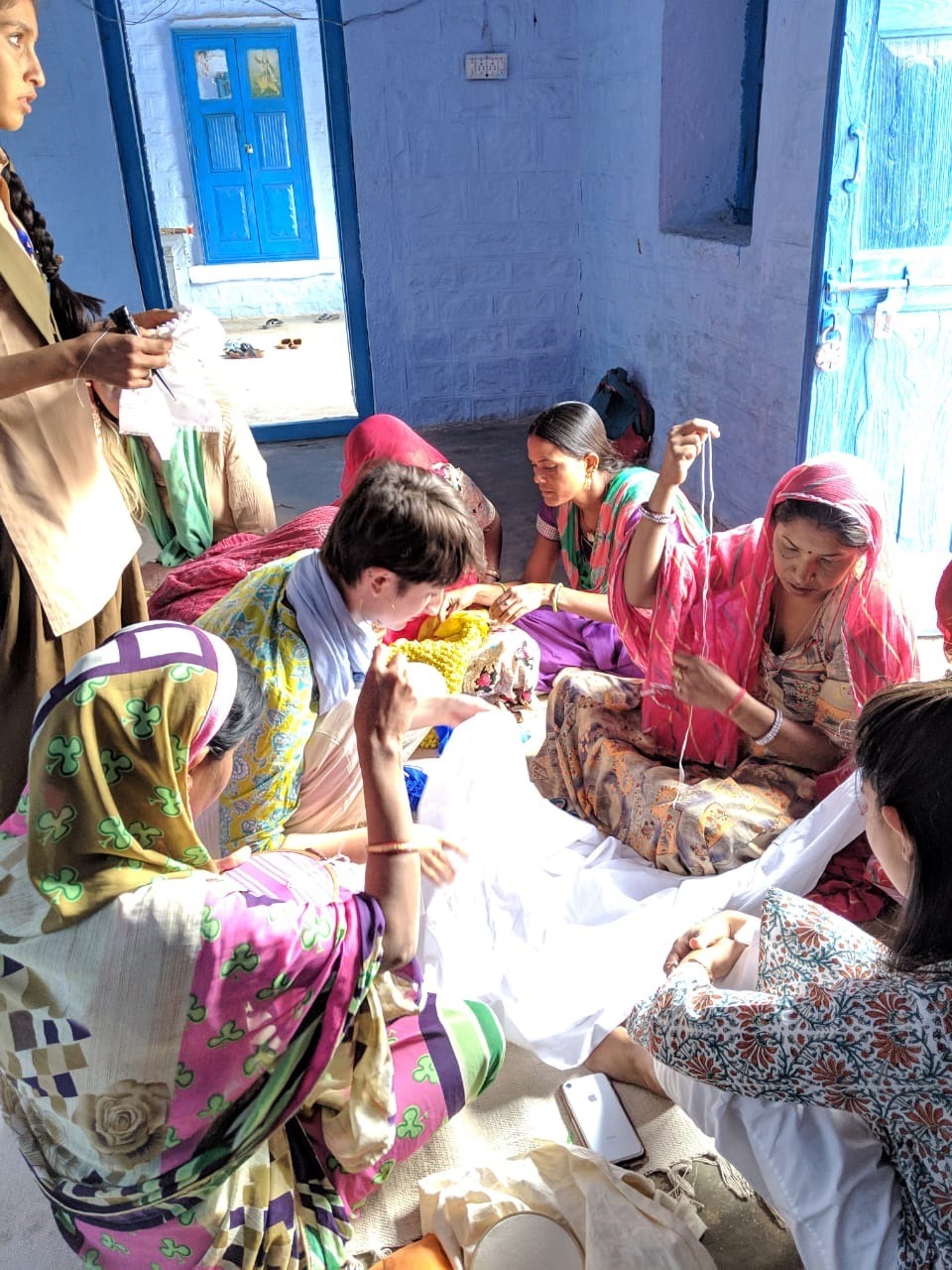
Gaining confidence, stitch by stitch
TextileArtist.org: Tell us a little about the mission of Saheli Women and its history
Louise Jessup & Juliette Laville: The Institute for Philanthropy and Humanitarian Development (IPHD) is a grassroots, non-profit organisation in Northern India. It was set up to help develop rural communities by empowering and educating girls and women. Saheli Women is one of the three programmes it runs, alongside a Girls Education Program and a Health Program.
Saheli Women was set up to empower the women from the village of Bhikamkor by giving them financial independence, rather than having to rely on their husbands and families. The programme provides good quality employment for the women, ensuring that they have a sustainable livelihood to support themselves and their children. The name Saheli, the Hindi word for “female friend,” was chosen as it reflects the organisation’s aim of empowering women.
Differences in culture and traditions make it difficult for women to work outside of the home here. The sensitivity of the situation in the village can sometimes be overlooked from our Western perspective. It often takes a long time, even years, for women to join the centre as it involves gaining permission from their husbands and family members.
For the past three years, the Saheli Woman have been producing clothes and bags for brands like Zazi Vintage, Tulasii and Eastern Soul. As well as providing an income, working with these brands has given the women an opportunity to develop their sewing and embroidery skills, as well as their confidence.
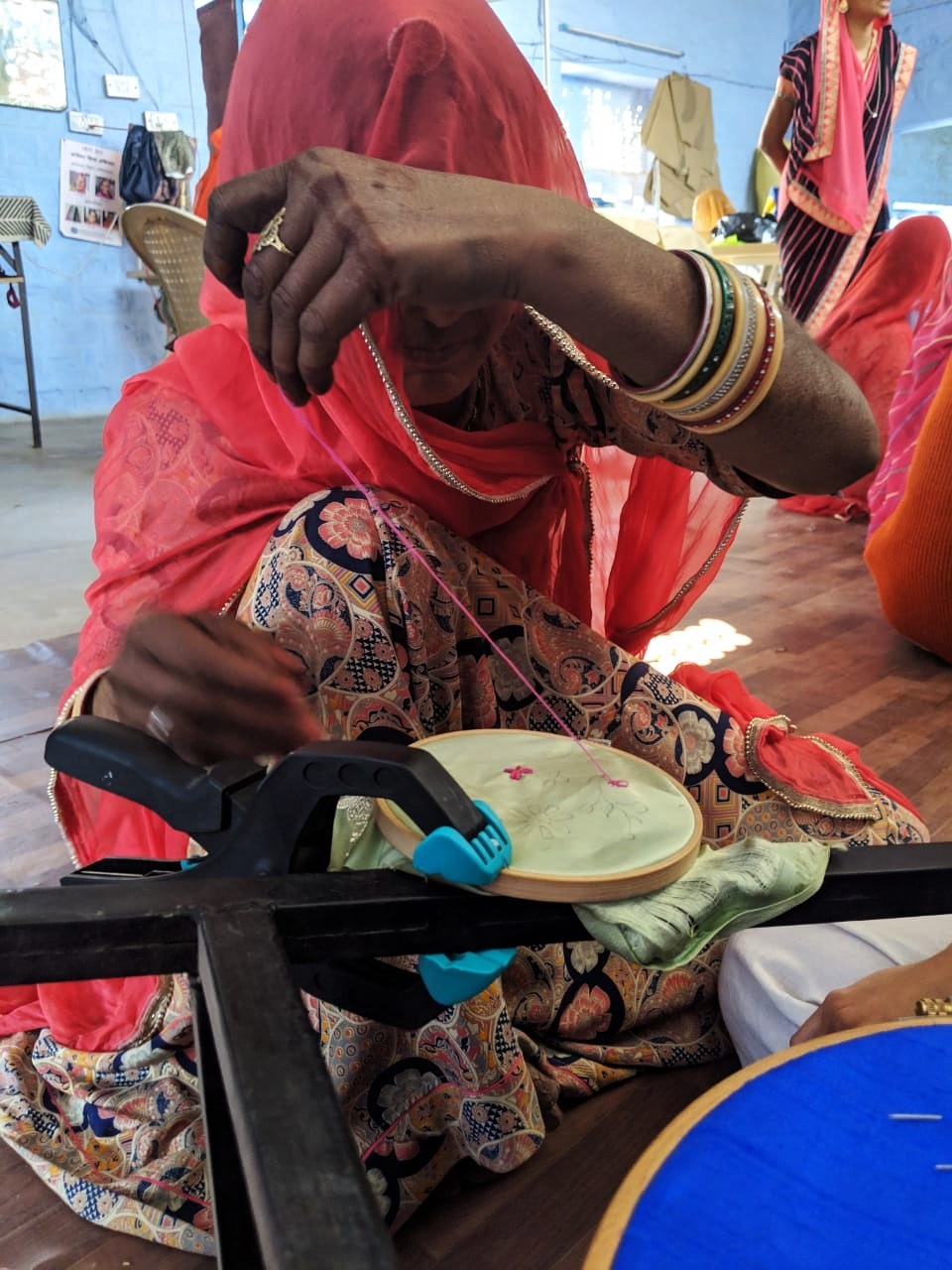
Who can work for the organisation, what is their working environment like and how are they trained? What are the benefits gained by the women involved?
All of the women in the village are encouraged to join Saheli Women. The centre is not only their workplace but also a safe environment for them to be themselves; free from gender, religious and caste discrimination. The centre is also a place where they can socialise, make new friends and look after their children while working.
IPHD are making ongoing improvements to the centre to support the women. For example, they have recently added resources to the library room and bought a television to make training workshops easier to run. At the moment we are working on getting a new wardrobe fitted to ensure all the garments are protected, especially when there are sandstorms. Future projects include changing the tin roof which provides little protection from the fierce heat of the sun.
The women enjoy their time here. They are always in high spirits and the Saheli centre has become the hub of the village, always full of laughter.
IPHD try their best to help each member of the Saheli Women with initiatives like sponsoring the education of their daughters and covering health insurance costs. Not only do the women receive professional training from a local tailor, but they also receive workshops on a range of topics including human rights, feminism, menstrual hygiene and health and financial literacy.
One of the most important factors for the women is to gain financial independence. We have found this gains them respect from their husbands and families, as well as giving them self-confidence and ambition.
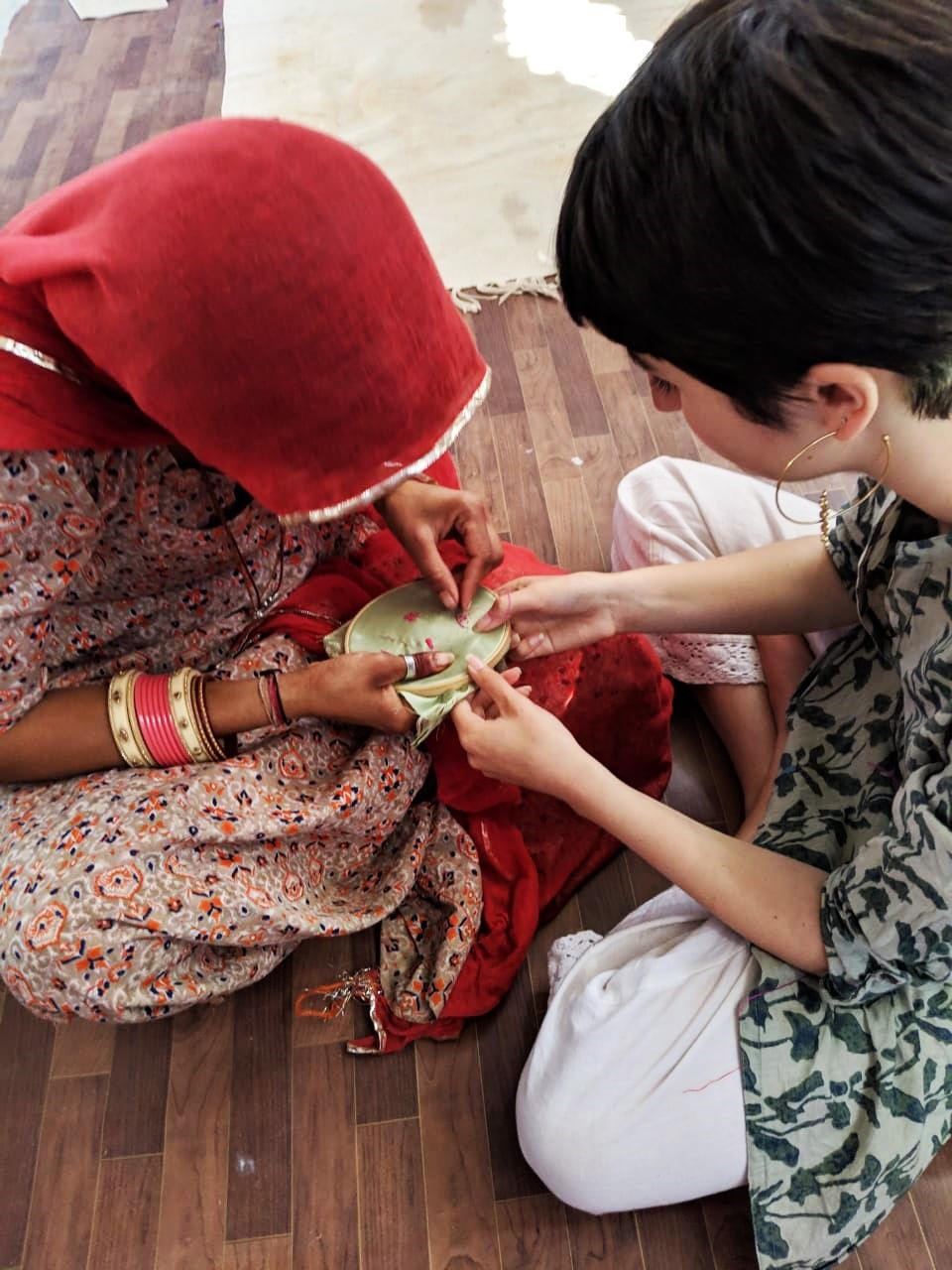
And how did you come to be involved with the organisation?
Both of us had dreamt of working in India. When we first met, we would always discuss the beautiful textiles that make India so famous. We adored the craftsmanship that went into traditional Rajasthani textiles.
After finding IPHD on social media it seemed like a perfect match. We were inspired by the chance to learn more about producing clothes ethically while supporting rural development. An internship with IPHD would perfectly combine our skills in textiles and design while using our creativity to support the women in the village. We secured places to work with the Saheli Women (two months for Louise and six months for Juliette).
The aim of our internship is to contribute in a meaningful way while gaining skills in sustainable community development and experiencing India’s vibrant culture.
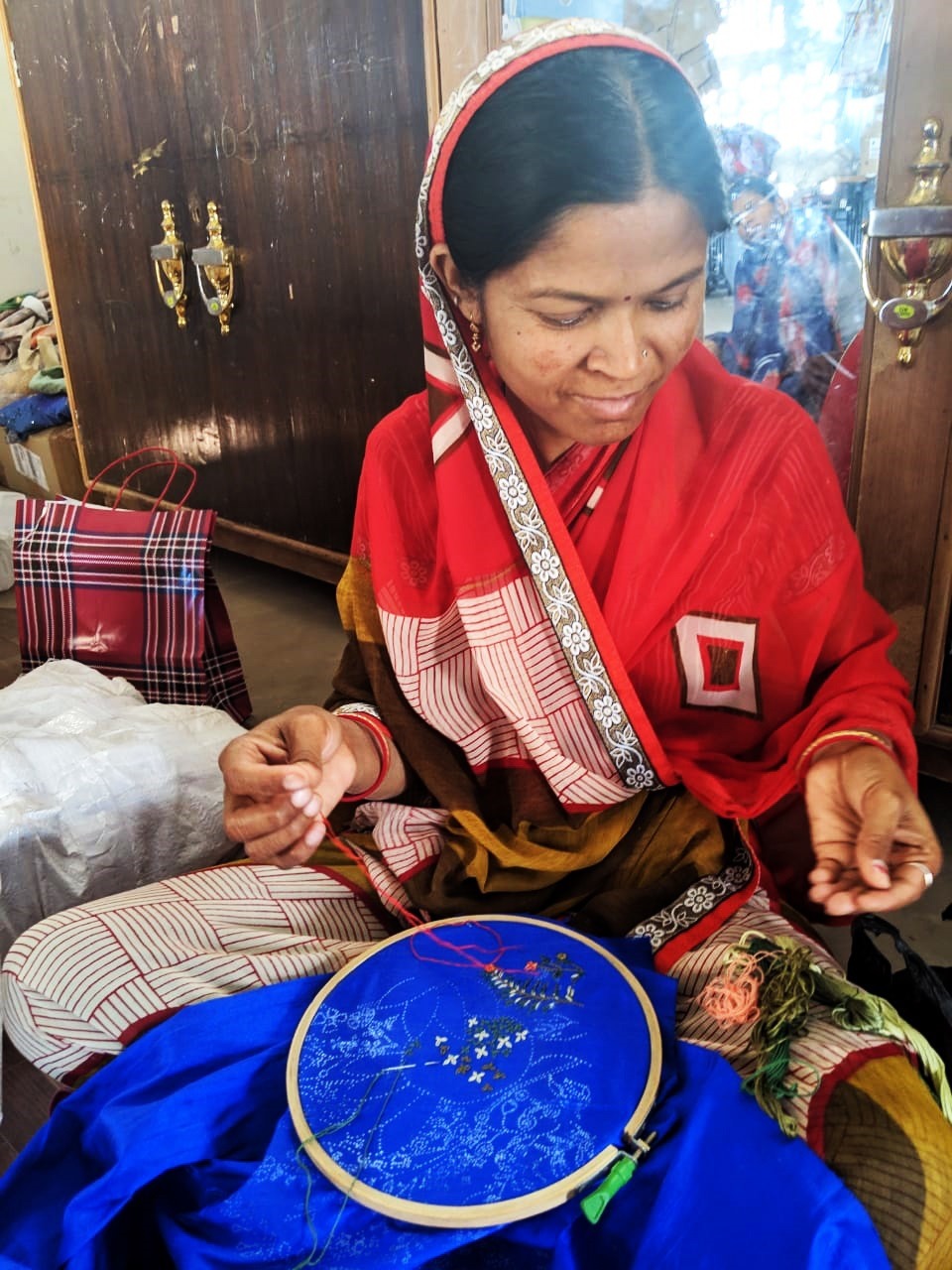
Step-by-step to creative freedom
You are running a project to showcase the women’s embroidery skills. What does it involve?
When we took trips to the village we noticed that the women’s embroidery skills were not being made the most of, in the work provided by our fashion partners. Our idea was to create a new project specifically focused on embroidery.
We wanted to showcase the sensitivity and artistry in the women’s work. We felt it would enable them to develop their artistic freedom and no longer would they be viewed merely as a production unit.
The project is allowing the organisation to take the first steps towards Saheli Women being recognised as its own ethical brand and displays the valuable skills of the women in the village.
But this project did not come without its challenges.
Working with the women involves a lot of cultural exchanges. Communication can be tricky; for example, trying to explain the pattern to the women without overwhelming them. Having some input to the design and using their creative freedom was a new approach for them. They were out of their comfort zone and at first, some of them worried that it would be too difficult.
However, it is these challenges that make the final result so rewarding. The women have really enjoyed the chance to express themselves in their embroidery work.
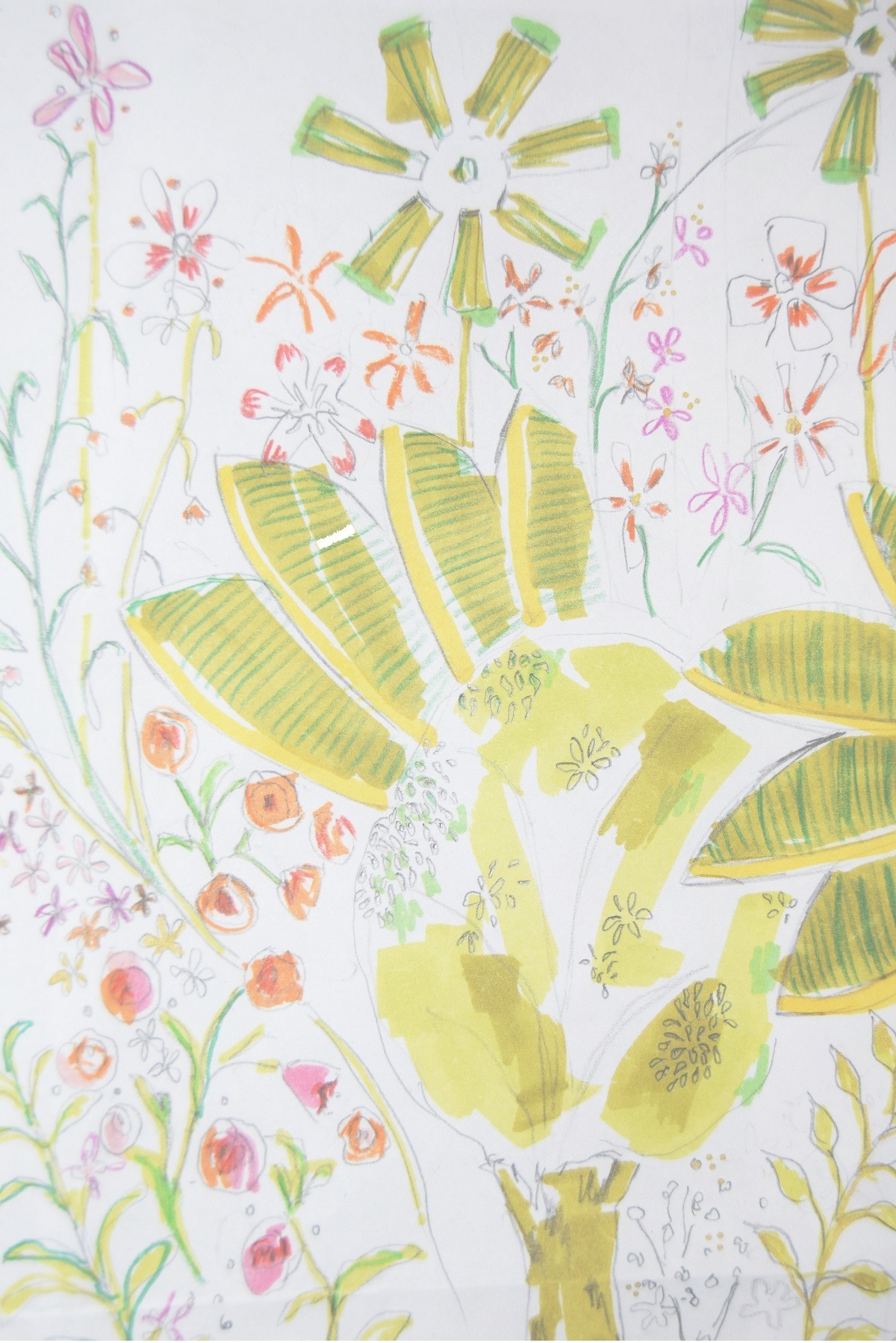
Tell us more about the jackets. What inspired the designs and colours? Did the Saheli women have an input in the design process, to express their artistic freedom?
This jacket is inspired by the Rajasthani landscape and Indian miniature paintings.
We decided to base the embroidery on a garden, despite the fact that Rajasthan is a desert state. We were both mesmerised by the beautiful green spaces that we found hidden in the streets of the city of Jodhpur.
The smock pattern represents the flowers that we found. For the embroidery design, we wanted to make it look more like an illustration, inspired by the scenes depicted in the Indian miniatures we had seen. We were also keen to incorporate a more Western influence, the style of Jean-Jacques Sempé, one of our favourite artists. We wanted to keep an element of naivety yet make sure the design was very intricate.
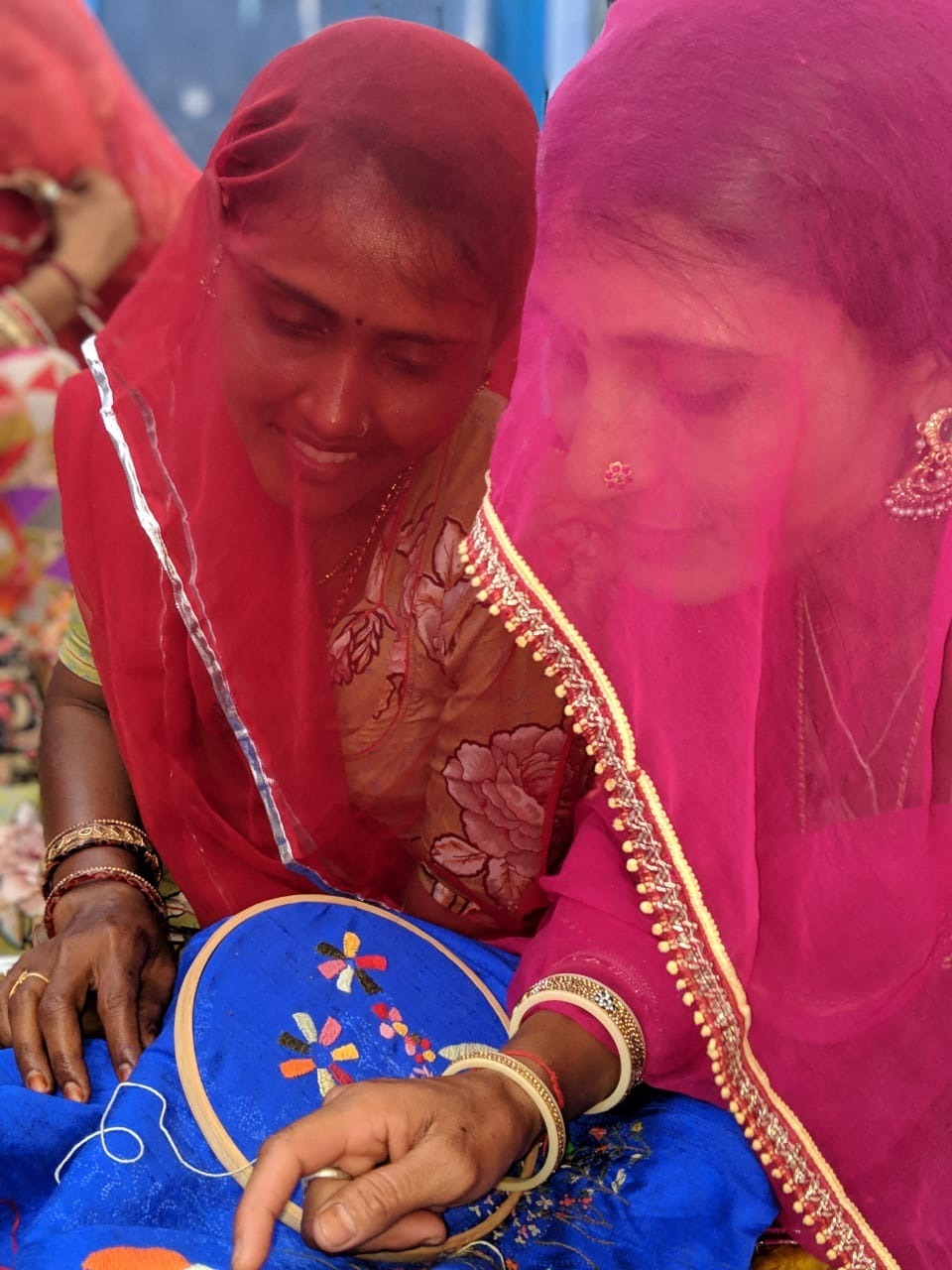
The women working on the project had the freedom to choose the embroidery stitches and the colours used in the jacket. During training sessions, they were taught new stitches like the French knot and Bullion knot. They were also taught how to mix these techniques to compose the pattern.
Something we found challenging was encouraging them to mix the different coloured threads together to create more shades and add texture. They were used to using only pure, bright colours.
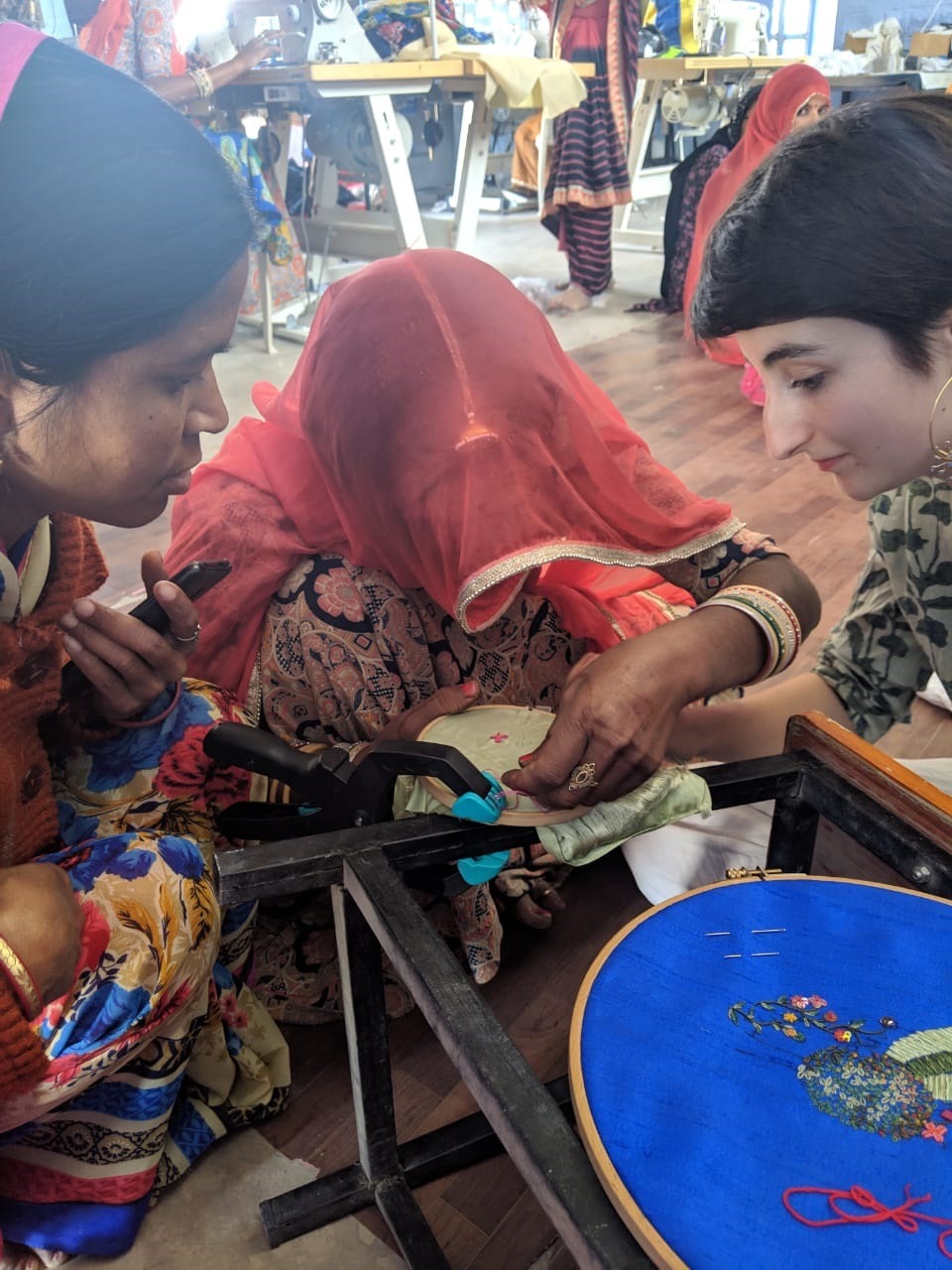
The joy of learning
What has been the reaction of the women to having a chance to express themselves artistically?
When we told the women about the new project, they were all very excited.
It did cause some reservations, though. The women were nervous about how much work it would involve. Many of them have other commitments alongside their work, such as looking after their families.
However after showing them smocking samples and embroidery swatches all of them became very interested, each one of them keen to learn the new stitches.
We really wanted to change the way the women viewed their embroidery. To show them that it was not just a task and about filling a shape, but about a chance to use creativity, imagination and colour.
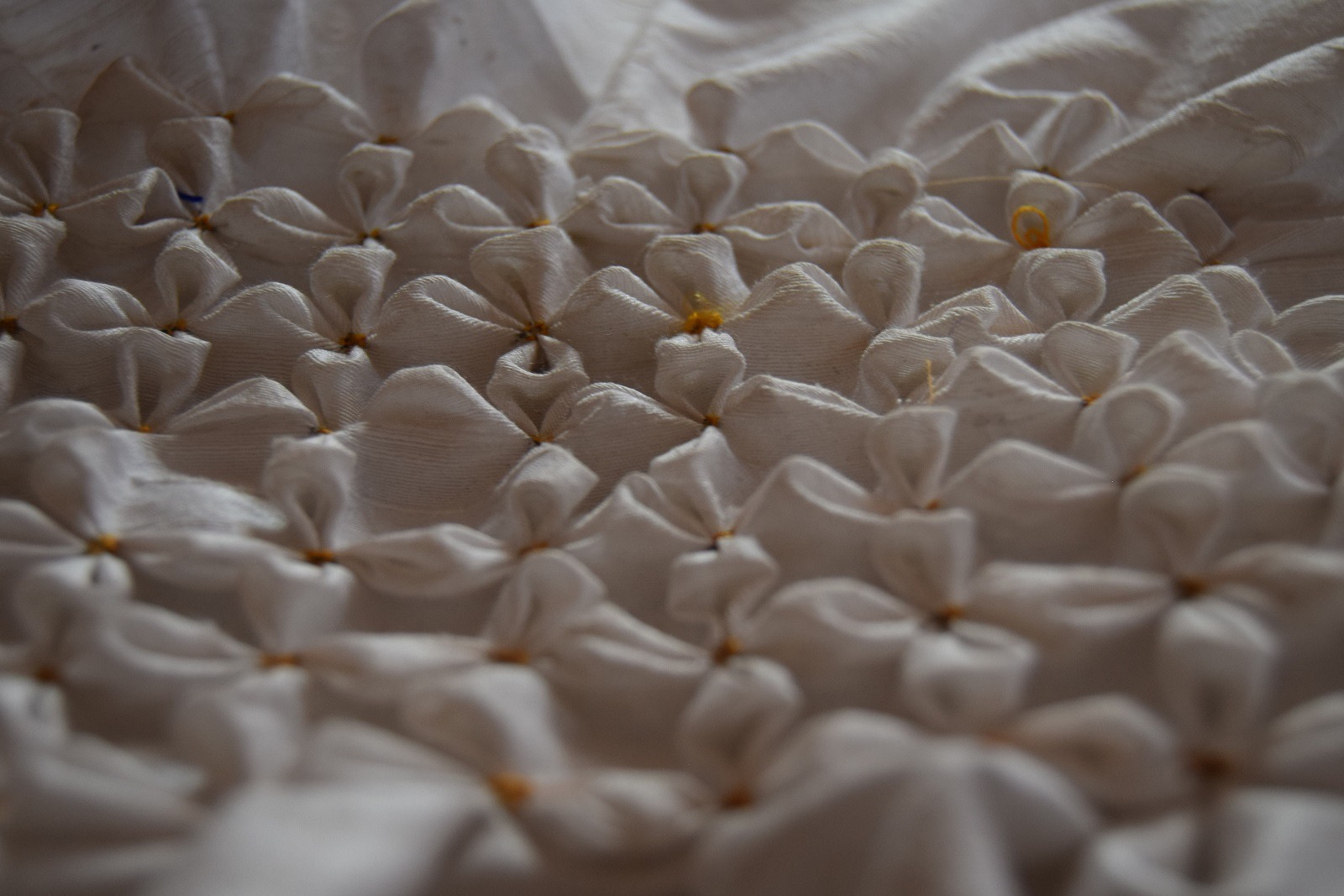
Has working on this project affected you and your goals for the future? What has most inspired you about your internship?
Interning at IPHD has definitely opened our eyes to future opportunities.
It is just as much of a cultural life experience as it is an internship to learn new skills. We have not just learnt about Indian textiles and fabrics but about life in the village and rural development, too.
We have learnt how to work and communicate with people who do not even speak the same language as us!
This way of working is something that we both want to continue in the future. We’ve become hooked on the idea of collaboration mixed with exploring cultural identity.
Supporting the women by providing an opportunity to improve their own skills is something that we both found very rewarding. It deepened our love for artisan work and it is our belief that craftsmanship can be a real strength in the economy.
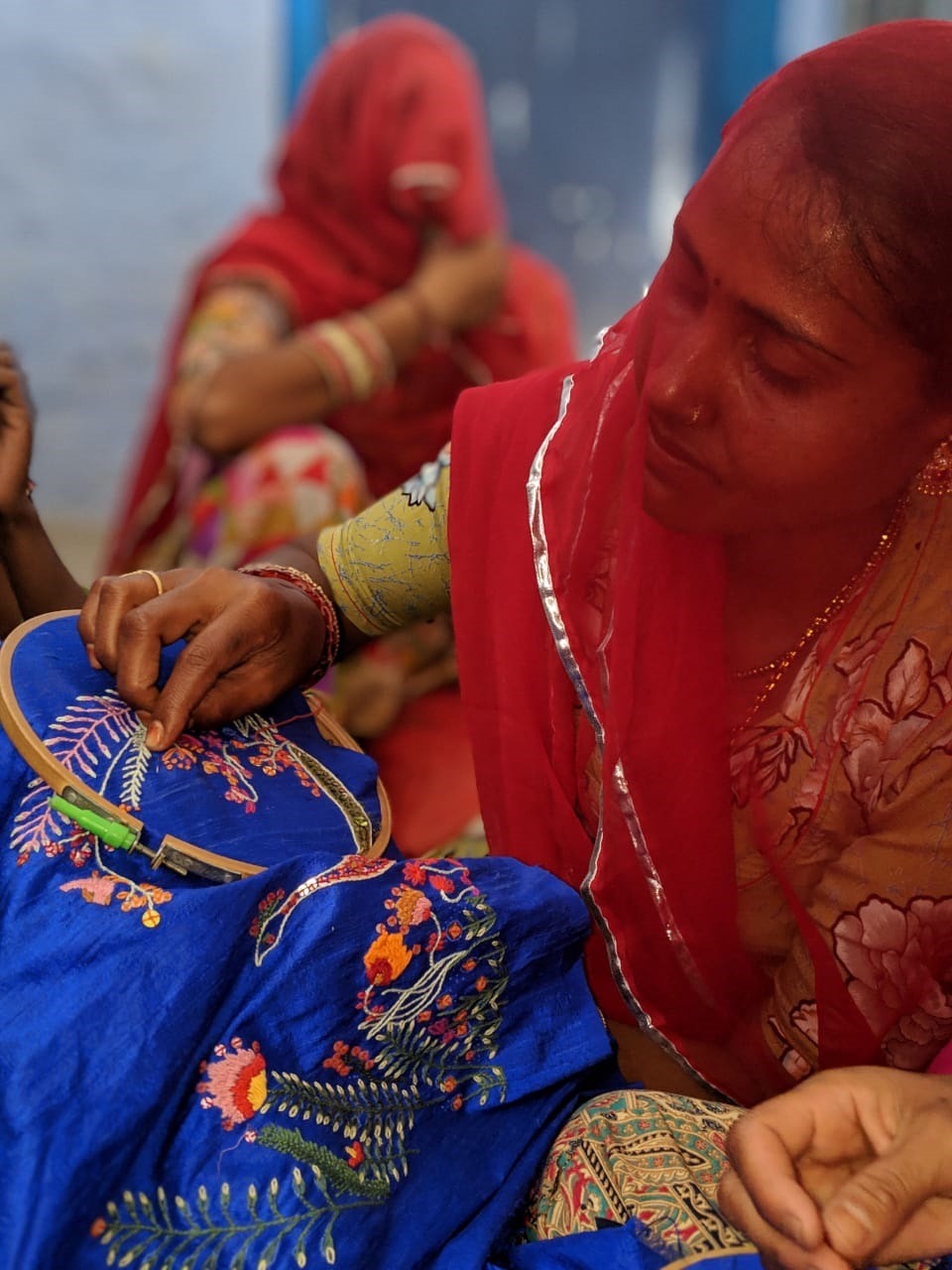
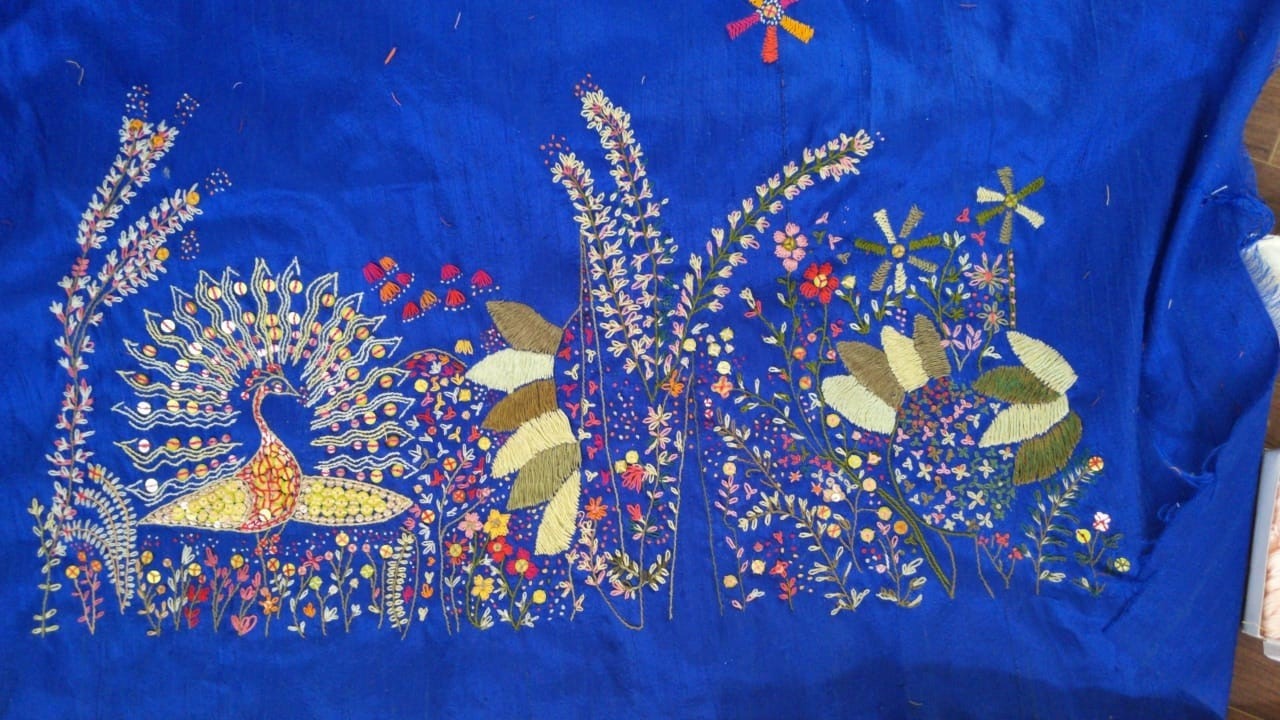
If you’d like to follow the progress of Saheli Women and IPHD India, check out their Instagram accounts: @saheliwomen @iphd_india
and their websites: IPHD India and Saheli Women
If you have enjoyed this inspiring story why not share it with your friends using the buttons below?

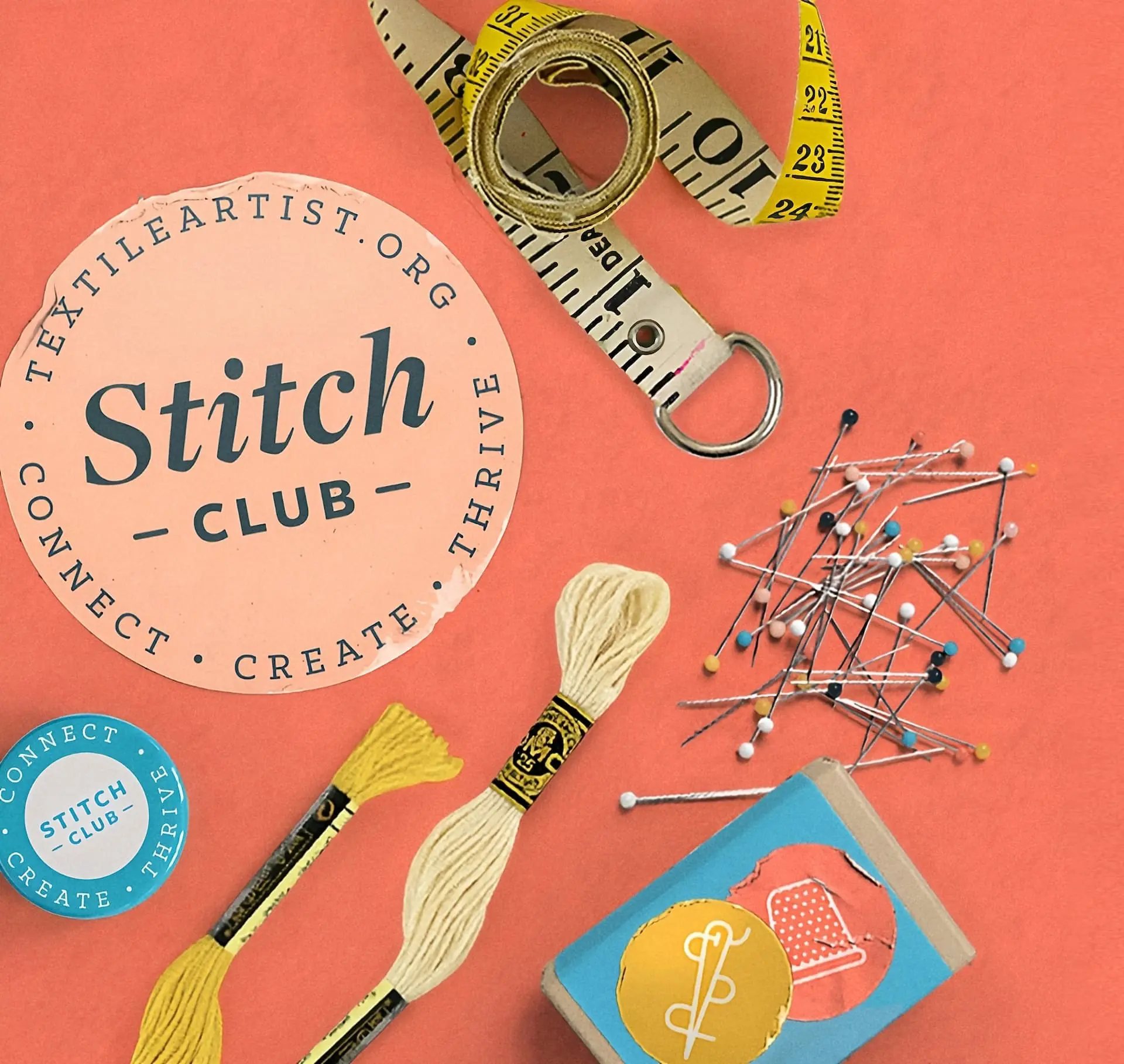
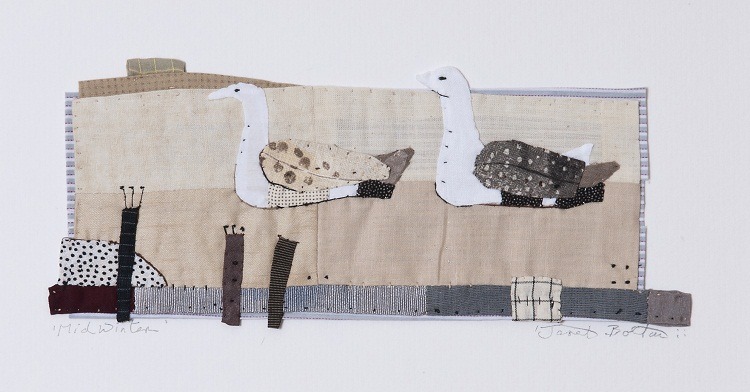
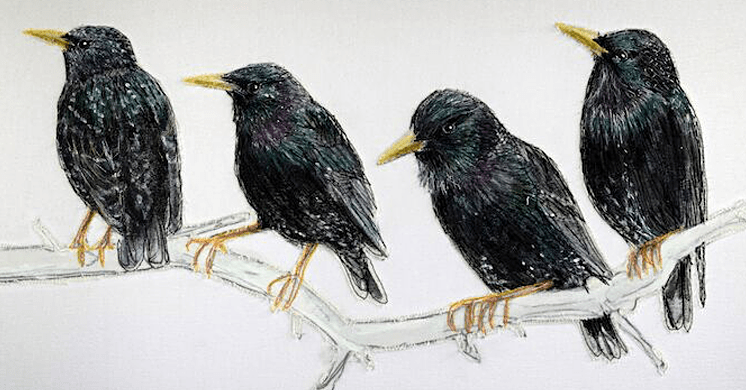
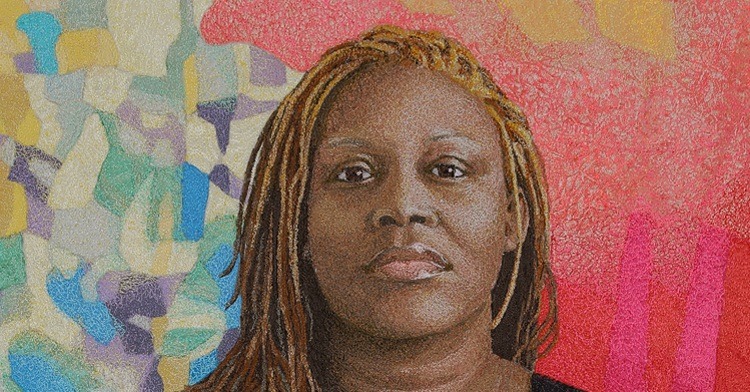
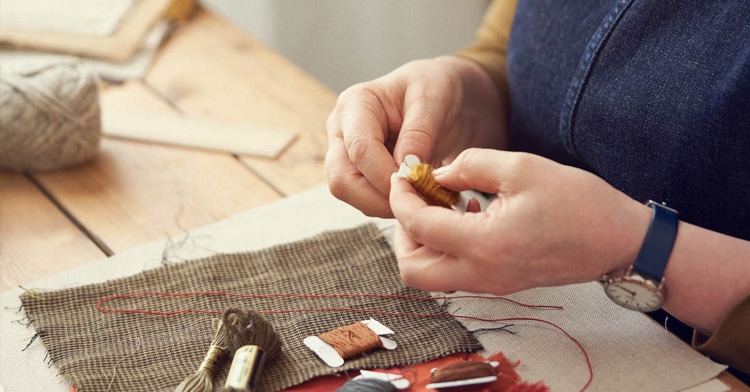
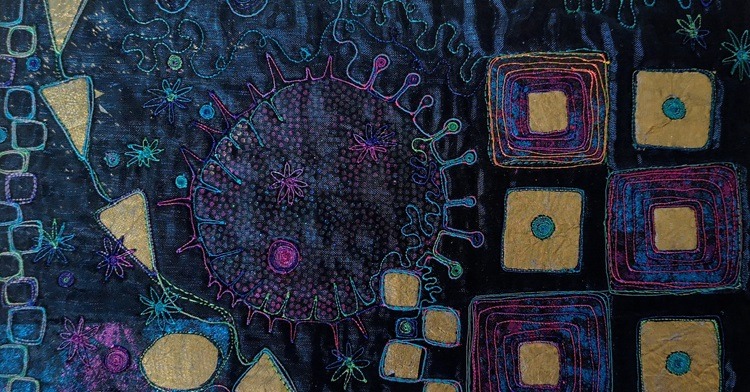
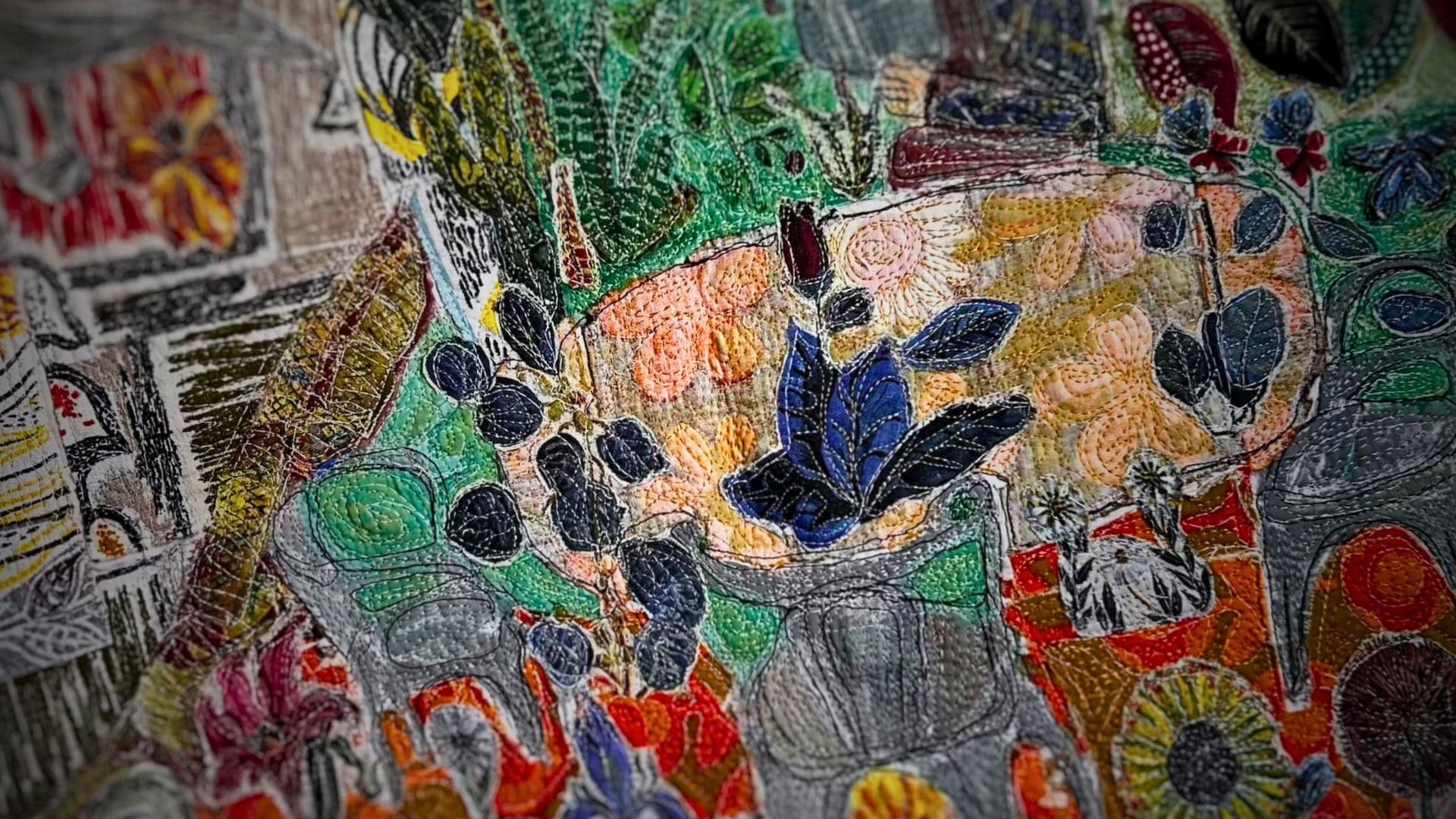
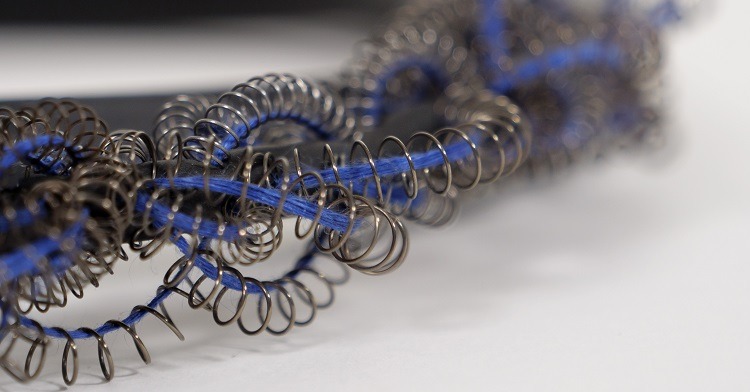
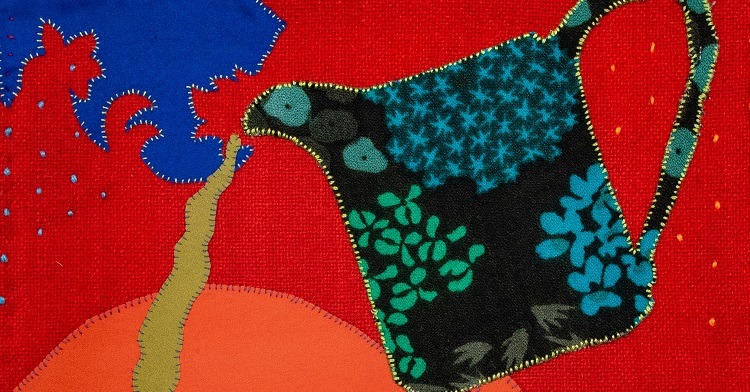
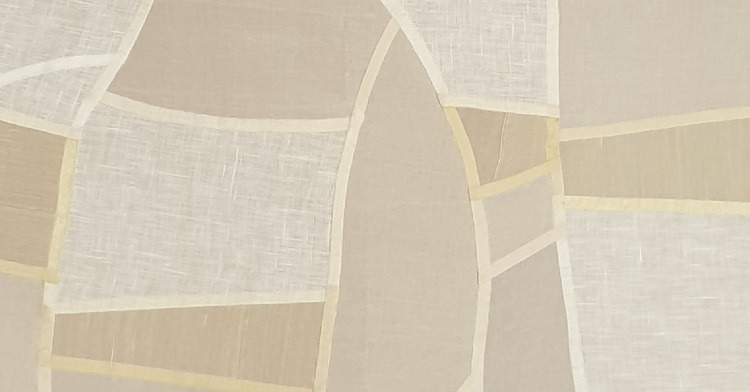
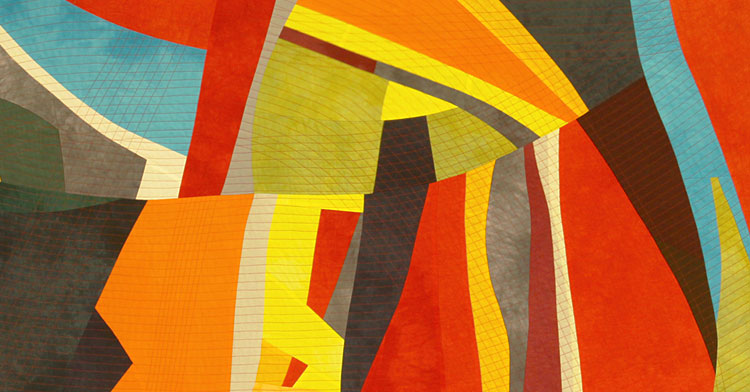
8 comments
Wendy
What is the current status of IPHD India and this program?
rose
the grace and dignity of the ladies shines out through the pictures taken of them, i hope that their beautiful work will be properly appreciated for all the skill needed to create such wonderful embellishments.
Franci
Boeiend om te lezen.
Handwerk / borduurwerk is prachtig maar tijdrovend en daarop in de westerse wereld kostbaar om te laten maken.
De Saheli vrouwen zijn waarschijnlijk heel blij met deze training en de ontwikkeling van hun vaardigheden maatr toch heb ik mijn twijfels!
Dus mijn vraag is : Is dit geen verkapte vorm van slavernij?
Yvonne Autie
Having spent three years in India & Nepal I appreciate the quality of the work & the dedication involved. Their embroidery skills are second to none.
Jen Cashmore
In the mid 1980’s, I did a similar project in Alexandra Township, Johannesburg . Out of Alex was created to empower women with poor education and no skills for the job market. Designs using township scenes , strong colours and a palet of about ten stiches was used in the design. I have long retired from this project and it has morphed in many way since my 12 or so years with it……is still I full swing empowering women by “the power of the thread “. I am very proud of them, their joy and perseverance .
Gregory Wilkins
Truth to power!
Michelle Thomasson
Really uplifting article thank you and helpful insights, I will share this with my local International Women’s group.
Nisha Chadha
Thank you for this lovely heart warming story.